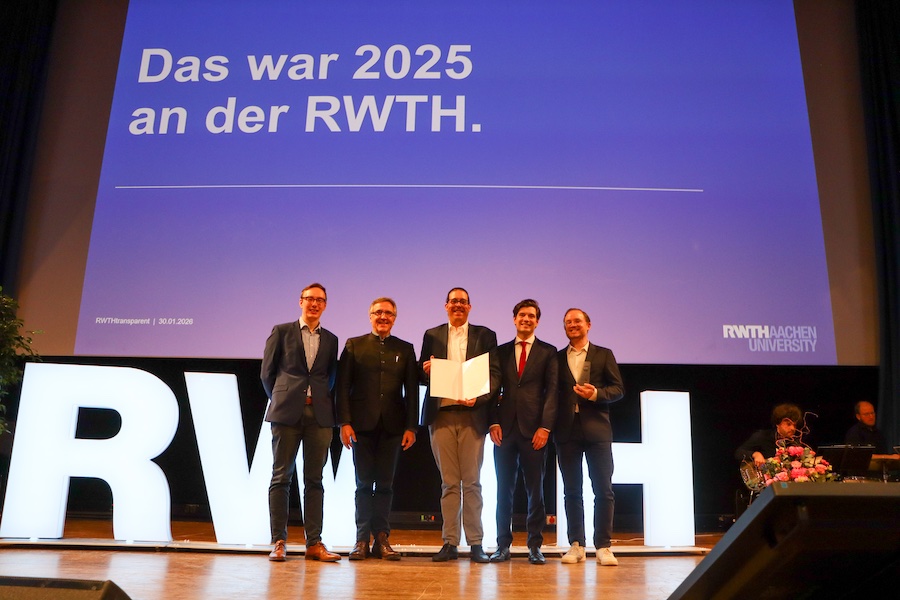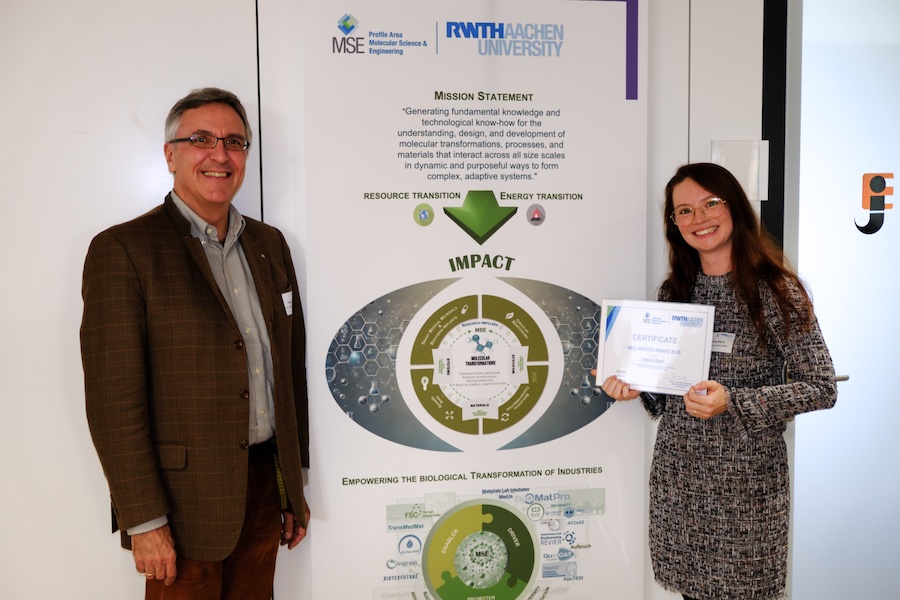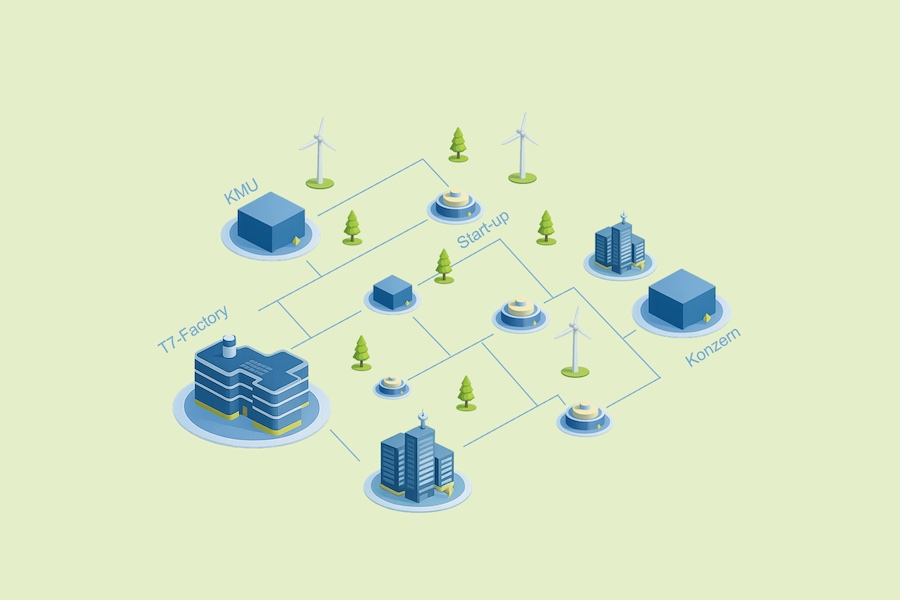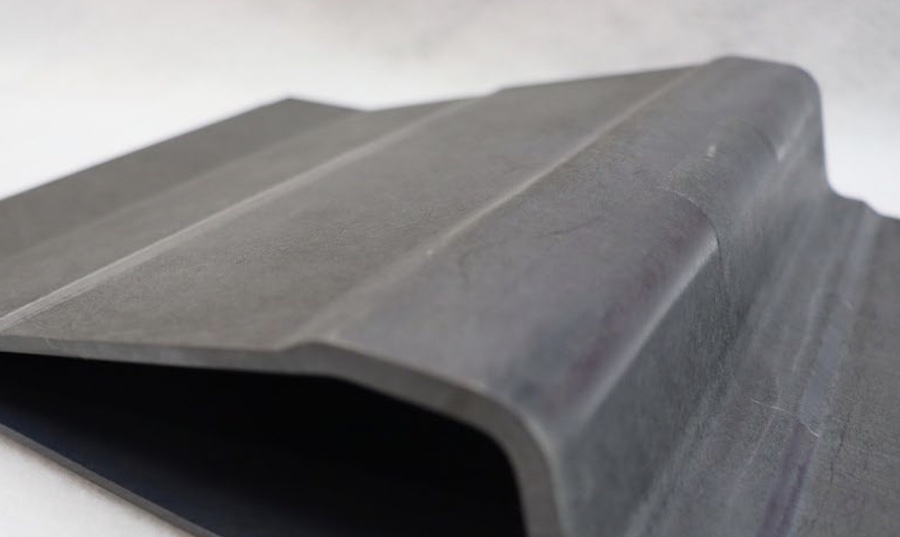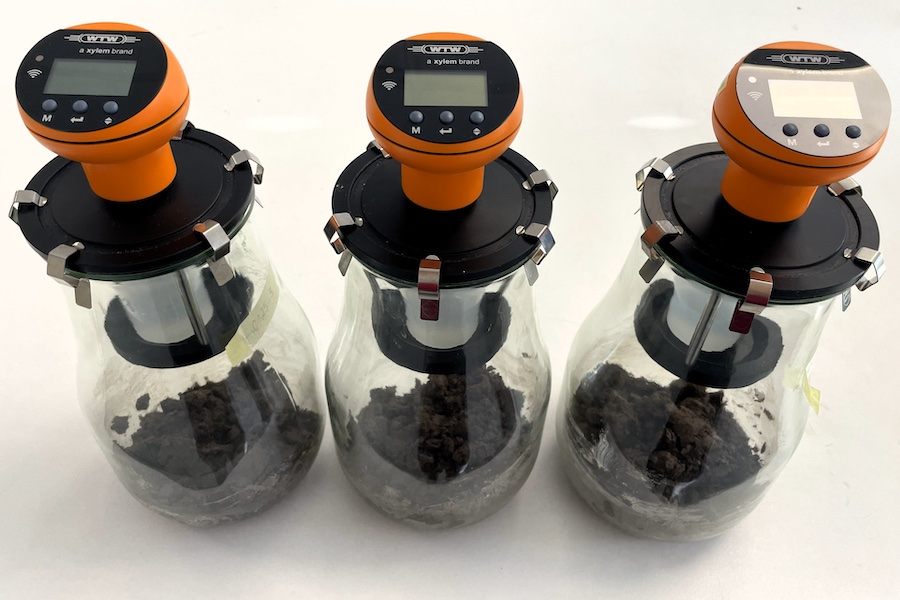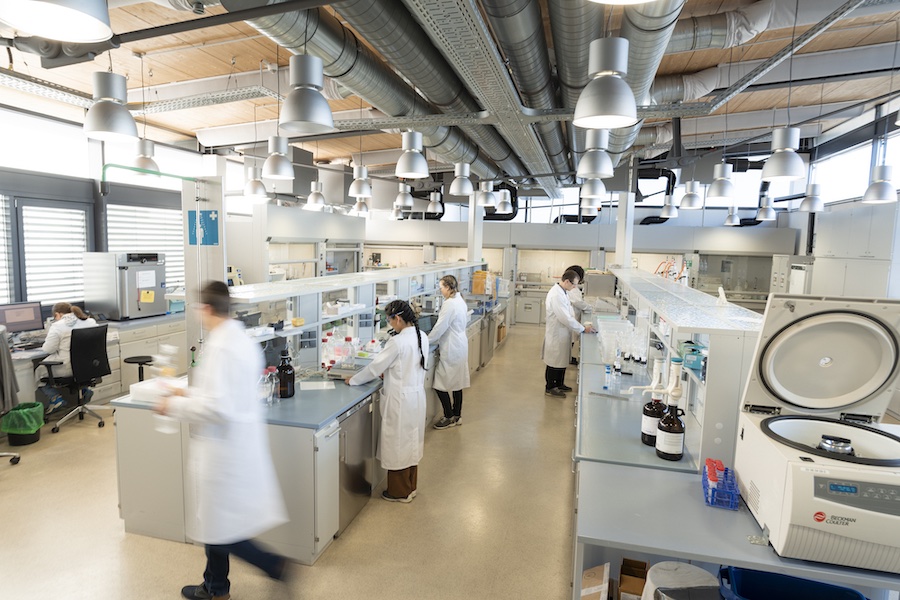#Research & Development
85 years of Institut für Textiltechnik of RWTH University, short ITA
Until the 1960s, the contents of research and teaching at the new institute consisted of fibre science and testing, spinning machines, weaving and finishing machines as well as textile production. Under the direction of Professor Dr Walther Wegener, numerous test methods were developed and the institute established at the RWTH Aachen University.
New contents at the beginning of the 1970s
At the beginning of the 1970s, new contents were successively added, including knitwear and nonwovens. Professor Dr Joachim Lünenschloß successively expanded the chair and concentrated on topics of spinning and weaving. Under Professor Dr Burkhard Wulfhorst, new focal points were added in order to take into account the new framework conditions of an increasingly global economy. He began researching machines and processes for the manufac-ture of fibre composites, founded a research group for medical tex-tiles and smart textiles and also oriented the institute internationally through various cooperative ventures.
Professor Dr Gries takes over ITA’s management
After Professor Dr Thomas Gries took over the management of the institute in 2001, ITA has gone through a very dynamic growth phase, especially in the last ten years. Today ITA employs about 400 people, including more than 100 scientific employees. ITA is one of the largest institutes of the RWTH Aachen University with the widest range of applications at the location.
Throughout its history, ITA has been significantly involved in many important process and machine developments in textile technology. These include, for example, false-wire texturing, air spinning, rota-tional braiding and automated weaving machines. The basic devel-opment up to the practical maturity of textile-reinforced concrete as a new building material took place in cooperation in Dresden and in Aachen at the same time, in each case with significant participation of the textile institutes of both locations. The development and ex-pansion of our capacities for the production of fibres from polymers as well as for glass and carbon fibres were also a major contribution to a "full-service" institute.
AI at ITA for > 25 years
Artificial intelligence (AI) is on everyone's lips today. More than 25 years ago, ITA’s AI process was used to predict machine settings and product properties - then as a pioneer in this field. Dr Dieter Veit - today ITA’s Academic Director - likes to remember this time:
"In the beginning, we took the basics for the program code for a neural network from a computer magazine and adapted it - and then trained the network until it could deliver reliable predictions. Later, we developed our own neural networks."
At that time, "only" the powerful computers were missing to make this approach a resounding industrial success - so this research was ahead of its time. Computer capacity exists today, the mathematical foundations have not changed significantly for the basic industrial AI applications. Thus today's researchers can fall back on the dissertations and research reports from the late 1990s and early 2000s and still be "up to date".
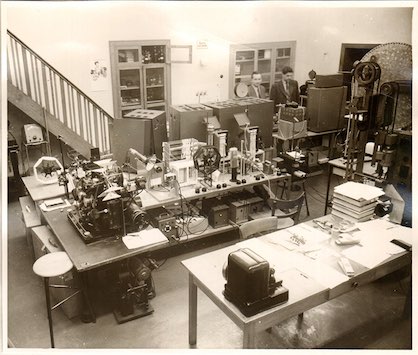
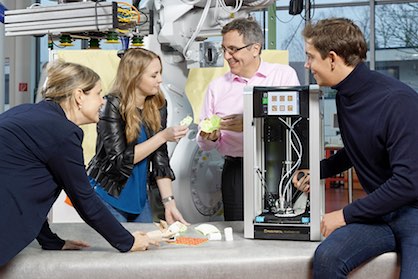
From ITA to ITA Group
In recent years, ITA has evolved into ITA Group. The ITA Technologietransfer GmbH as a development partner of the industry, ITA Academy as an advanced training institution, the Digital Capability Center, short DCC, as a transfer center for digitisation and Industry 4.0 and ITA Augsburg as a gateway to the automotive and aerospace industry in Southern Germany show the broad and demanding portfolio. Innovative topics today are, for example, 4D textiles that can change their geometry, patient-specific implants for vascular surgery, the automated production of complex textile preforms for lightweight construction or the integration of functions in smart textiles. The current topics of teaching and research are oriented towards social needs such as mobility, health, construction, housing, energy and digitisation. In addition to textile products, ITA also adapts or develops new machines and processes for all these applications.
Numerous prizes that our students and doctoral candidates have won over the last 85 years show that our research often gets the nerve of time.
Money, women and kids
A constant challenge remains the fact that the Institute finances itself to more than 95 percent from third-party funds, which have to be raised every year. Two thirds of this is public money, one third comes from bilateral research contracts with industrial companies. To this end, ITA must also be able to demonstrate scientific excel-lence in basic research and industrial application.
ITA is also a place of qualification on all levels: from apprentices to students to doctoral candidates to specialists and managers. For example, we train engineers in mechanical and industrial engineer-ing with a specialisation in textile technology for industry and teach-ers in textile and clothing technology for vocational schools. Through our German-English Master's programme in Textile Engi-neering, we also offer courses for international students.
We are proud of the fact that we have the highest proportion of women in our studies and at our professorship and the highest number of children of all mechanical engineering institutes at RWTH Aachen University, and that we are motivated to continue offering attractive studies and a pleasant working environment for young parents in the future.
The textile industry is currently undergoing change everywhere, whether in Aachen, the Euregio, Germany or worldwide. ITA takes up this great challenge with equally great determination. Textile technology enables products that affect all areas of life and has be-come an integral part of everyday life. This high importance drives ITA further as a research institute. We therefore look back with satis-faction on the past 85 years and look forward to the future with joy.




